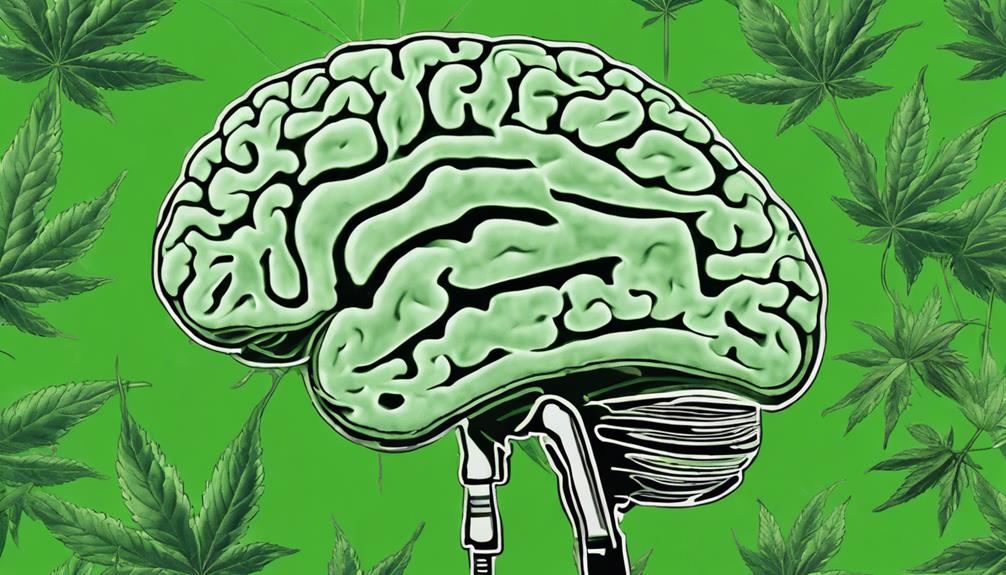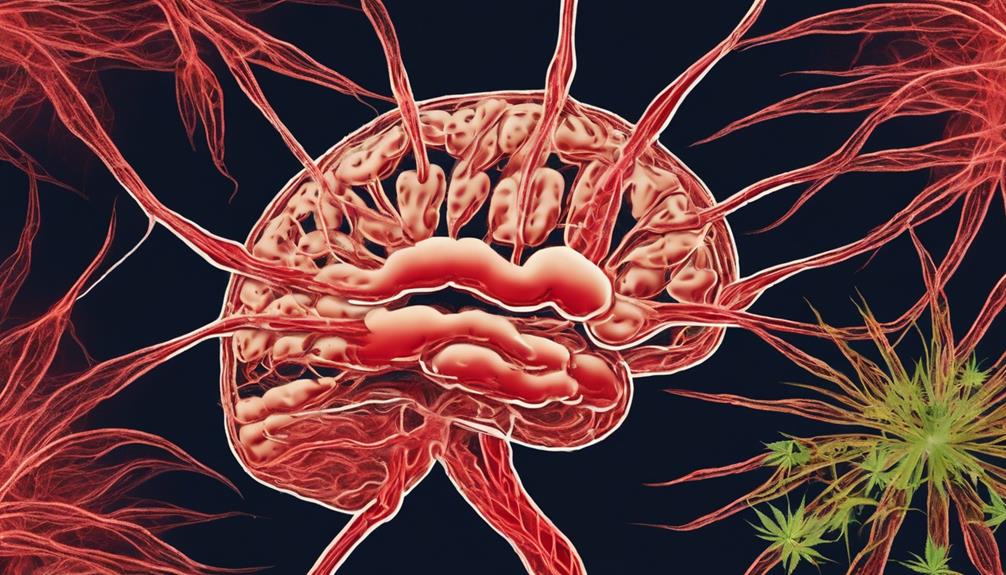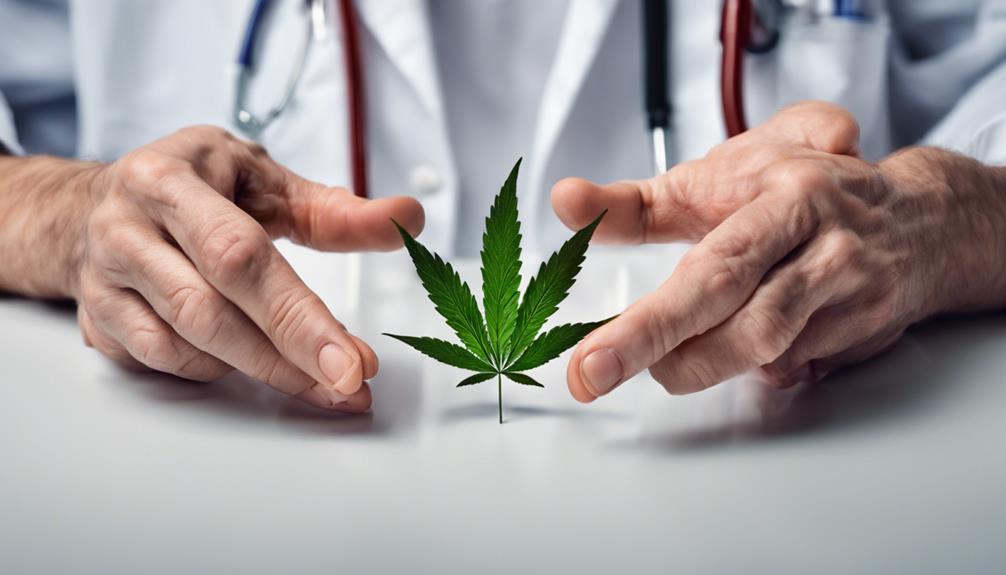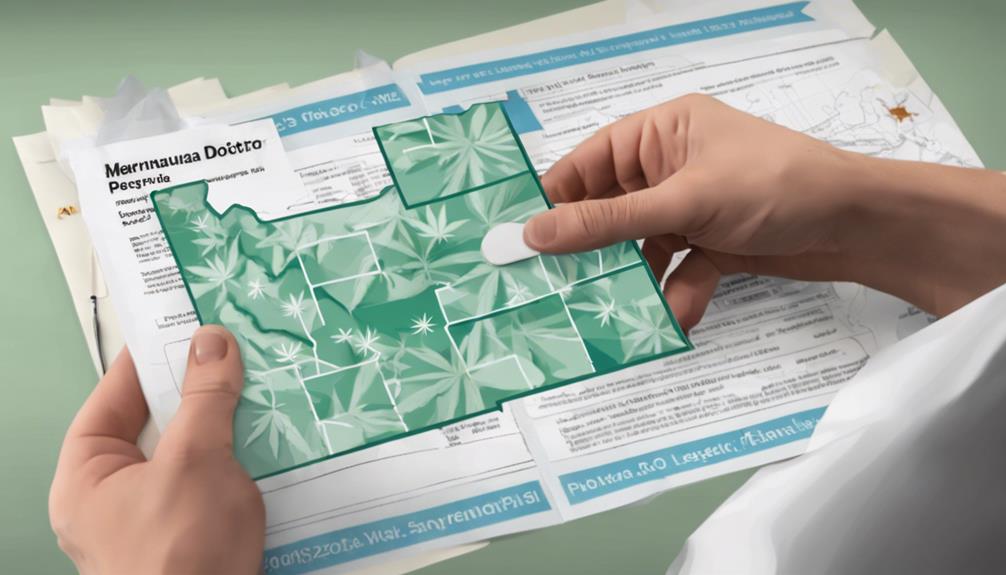Imagine living with the debilitating effects of Multiple Sclerosis: muscle stiffness, spasms, pain, and fatigue. Now consider an alternative, a holistic approach to managing these symptoms. The ability of medical marijuana to interact with your body’s endocannabinoid system could provide relief where conventional treatments fall short. It’s not a miracle cure, but it’s an avenue worth exploring. Don’t you want to know how this plant might offer a better quality of life for those living with MS? The science behind it may surprise you.
Understanding Multiple Sclerosis

In the field of neurological disorders, Multiple Sclerosis stands as one of the most complex and formidable diseases. If you desire to serve others, it’s essential for you to understand its nature. This disease involves an immune-mediated process in which there is an abnormal response from the body’s immune system directed against the central nervous system, including the brain, spinal cord, and optic nerves.
Managing symptoms in MS is challenging due to the wide range of neurological symptoms involved such as fatigue, difficulty walking, numbness or tingling sensation, muscle weakness and problems with coordination and balance. Understanding this variability in symptoms can help you provide more empathetic care to those affected.
Disease progression in MS is equally unpredictable. Some people might remain symptom-free for most of their lives while others may quickly experience severe disabilities.
The four identified disease courses in MS are:
- Clinically isolated syndrome
- Relapsing-remitting MS
- Primary progressive MS
- Secondary progressive MS.
Knowledge about these courses can guide you in anticipating the needs of patients and planning appropriate interventions.
Conventional Treatments for MS
As you grapple with the unpredictability of MS, you might wonder about the treatments available to mitigate its debilitating effects. Conventional treatments primarily focus on slowing the disease’s progression, managing symptoms, and speeding recovery from attacks. The most common include corticosteroids and plasma exchange for acute attacks, disease-modifying therapies like interferons and monoclonal antibodies for long-term management, and a variety of medications to manage symptoms.
Yet, despite their widespread use, efficacy studies have painted a mixed picture. While these conventional treatments can be effective, side effects like flu-like symptoms, injection site reactions, and potential liver damage often leave patients searching for more tolerable alternative therapies.
Physiotherapy and occupational therapy are two such alternatives that help maintain mobility and function. Dietary interventions and supplements like vitamin D have also shown promise. However, it’s vital to approach these with caution until more robust studies are conducted.
As you weigh your options remember that each person’s journey with MS is unique; what works for one may not work for another. It’s a delicate balance between managing your symptoms and maintaining your quality of life. Your healthcare team can guide you through this complex decision-making process providing insights and support every step of the way.
Brief History of Medical Marijuana

Delving into the archives of medical history, you’ll find that the use of marijuana for therapeutic purposes is far from a new concept. Ancient cultures, including Chinese, Indian, and Middle Eastern societies recognized and utilized the medical benefits of cannabis. They used it as an anesthetic, anti-inflammatory, and to treat conditions like gout and malaria.
In the 19th century, Western medicine rediscovered these properties. Physicians prescribed cannabis extracts to alleviate pain, improve sleep, and stimulate appetite.
However, in the early 20th century cultural acceptance shifted; marijuana was demonized and criminalized. This change was largely due to politics and misinformation rather than scientific evidence.
Fast forward to the late 20th and early 21st centuries; the narrative began to shift again. This change was driven by a growing body of research evidence patient accounts and newfound cultural acceptance.
The medical benefits of marijuana particularly in managing chronic conditions like multiple sclerosis started gaining recognition.
Today medical marijuana is legal in many parts of the world; its use in patient care is increasingly embraced. This acknowledgment is a tribute to nature’s therapeutic power harnessed responsibly and scientifically.
Components of Medical Marijuana
Building on this understanding of marijuana’s historical use in medicine let’s now examine what makes it an effective therapeutic tool today.
You see medical marijuana isn’t a one-size-fits-all solution; it’s a complex botanical with various elements that contribute to its therapeutic efficacy.
The two primary components are cannabinoids and terpenes. In terms of cannabinoid therapy cannabinoids such as THC (Tetrahydrocannabinol) and CBD (Cannabidiol) interact with your body’s endocannabinoid system helping maintain balance regulate numerous physiological processes. Each cannabinoid has unique properties and the ratio of THC to CBD in medical marijuana can be adjusted to meet individual needs.
But don’t overlook terpenes aromatic compounds found in many plants including cannabis. Terpenes benefits go beyond providing marijuana its distinctive scent. They also have therapeutic properties and work synergistically with cannabinoids a phenomenon termed the ‘entourage effect’.
For example, myrcene, a common terpene in cannabis, has anti-inflammatory and analgesic properties making it potentially beneficial for MS patients.
Understanding these components is vital for leveraging medical marijuana’s therapeutic potential and allows for more personalized patient care. After all serving others effectively requires a deep knowledge of the tools at our disposal.
The Science Behind Cannabis and MS

You might be wondering how does cannabis help those living with Multiple Sclerosis (MS)? Well, the science behind it is truly fascinating.
Consider this: our bodies naturally produce cannabinoids which are key players in regulating inflammation and neuroprotection. MS, a neurological disorder causes inflammation pain and muscle spasms due to an attack on the nervous system by the body’s own immune system. Fundamentally it’s a case of friendly fire gone awry.
Enter cannabinoid therapy. Medical marijuana rich in cannabinoids can supplement the body’s supply. When you ingest cannabis these external cannabinoids interact with your body’s endocannabinoid system a complex network that regulates various bodily functions. They bind to receptors reducing inflammation suppressing immune response not only alleviating symptoms but also potentially slowing disease progression.
The scientific community’s understanding of this interaction between cannabis and MS is still evolving. However current evidence suggests that medical marijuana can provide tangible benefits for MS patients. By understanding this you’re better equipped to serve those living with this challenging condition. Remember good care begins with good knowledge.
Patient Testimonials on Medical Marijuana
While the scientific evidence for the use of medical marijuana in treating MS symptoms continues to grow it’s equally enlightening to hear the experiences of those who’ve incorporated cannabis into their treatment plans. Patient experiences and personal anecdotes offer a unique perspective that can be just as valuable as empirical research.
Many MS patients report significant relief from debilitating symptoms after using medical marijuana. One patient, for instance, shared how cannabis helped reduce her muscle spasms and pain improving her quality of life.
Another testified how it helped him manage his anxiety and stress both common side effects of living with MS.
These testimonials underscore the potential of medical marijuana as an alternative or complementary treatment for MS. They highlight the possibility of improved daily functions reduced pain better sleep quality and a more positive outlook on life. However it’s worth mentioning that each patient’s body reacts differently to medical marijuana.
While patient experiences offer a compelling narrative it’s essential to approach medical marijuana use with a scientific mindset. Understanding the biological mechanisms that allow cannabis to alleviate MS symptoms coupled with patient testimonials can guide you in making an informed decision about its use in your treatment plan.
Side Effects and Risks

Despite the promising benefits of medical marijuana for MS symptoms it’s important to be aware of the potential side effects and risks. Like any medication medical marijuana can cause adverse reactions in some patients. Short-term you may experience dizziness dry mouth or changes in appetite and mood. While these symptoms are generally manageable they can be bothersome and impact your quality of life.
However, the long-term effects of medical marijuana use are less understood. Chronic use could potentially lead to cognitive impairment dependency and mental health issues such as anxiety or depression. These risks are notably increased if you have a history of substance misuse or mental health disorders.
Furthermore, the impact of medical marijuana on MS progression is unclear. Could regular use slow the advancement of the disease or alternatively could it potentially accelerate it? More research is needed to definitively answer these questions.
Legal Issues Around Medical Marijuana
Navigating through the legal terrain surrounding medical marijuana can be intricate and confusing given that laws vary significantly from one jurisdiction to another. You’ll face a myriad of legal challenges and regulatory hurdles that may feel overwhelming.
These legal challenges primarily stem from the dichotomy between state and federal laws in countries like the United States. While some states have legalized medical marijuana it remains a Schedule I drug under federal law putting users and providers in a precarious position.
The lack of a uniform legal framework means that each jurisdiction has its own set of rules and regulations regarding medical marijuana which might involve stringent licensing requirements strict operational guidelines detailed patient registration processes.
Moreover, the legal landscape is constantly evolving with laws and regulations being revised or introduced regularly. While this can lead to improvements it also means that staying abreast with latest legal developments is essential.
How to Access Medical Marijuana

Traversing the intricate legal terrain of medical marijuana can be challenging but once you grasp the laws in your area the next step is figuring out how to access it. To do so you’ll need to meet certain legal requirements and undergo a medical evaluation.
First, you must reside in a region where medical marijuana is legalized. This means thoroughly understanding your area’s laws to confirm you’re compliant. Some states may require a medical marijuana card which necessitates approval from a healthcare professional.
Your next step involves a medical evaluation where a certified physician assesses your symptoms and determines if medical marijuana is a suitable treatment for your multiple sclerosis. It’s important to bring all relevant medical documentation to this appointment.
After you’ve received approval, you’ll likely be registered in a state database allowing regulated access to medical marijuana dispensaries. There professionals can guide you in selecting the most beneficial strain and dosage for your condition.
Future Research Directions
As we look towards the horizon, the path towards further understanding the effectiveness of medical marijuana in treating multiple sclerosis is brimming with exciting possibilities. You’re on the frontlines with desire to serve and it’s crucial to stay informed about progress of clinical trials and emerging therapies.
Clinical trials are cornerstone of advancement; it’s here in these carefully controlled environments where true potential of medical marijuana is put to test. While it has shown promise there’s still lot we don’t know; current trials are focusing on long-term effects dosage potential interactions with other medications. You’re encouraged to follow these trials closely as results could directly impact your treatment plans.
Emerging therapies are another exciting area of research. Novel methods of administering medical marijuana such as transdermal patches or inhalers are being explored. These innovations could provide more effective targeted relief for your patients.
Conclusion
Understanding the interplay between cannabis and MS may be key to revealing personalized care. Medical marijuana’s cannabinoids and terpenes interact with our body’s systems potentially reducing inflammation and slowing MS progression. However, it’s not a silver bullet – side effects and legal hurdles are significant considerations. Accessing medical marijuana requires thoughtful navigation but as we delve further into the science and push for more research prospects for enhancing MS care with medical marijuana appear increasingly promising.
I’d like to personally invite you to learn more about how medical marijuana can potentially enhance the care for Multiple Sclerosis. The team at Fells Point Cannabis Docs of Maryland is always ready to help you understand better and navigate this journey. Please feel free to visit us or give us a call at (410) 401-4200. Together, we can explore potential benefits and challenges making sure you have all the information you need. We’re here for you looking forward to your visit.

